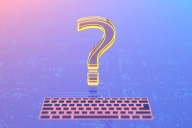You have /5 articles left.
Sign up for a free account or log in.
In the spring of 2015 the University of Illinois at Urbana-Champaign’s withdrew Professor Steven G. Salaita’s tenured-faculty appointment at the eleventh hour of his hire over Twitter posts harshly criticizing Israel. The institution deployed a procedural pretext – the fact that the Board had yet to formally approve his appointment, a pro forma action usually – to revoke the appointment even though courses, classrooms and texts were already in place for the upcoming fall semester. Notwithstanding the procedural pretext, administrators made their reasoning transparent: the tweets elicited concern that Professor Salaita did not meet some unspecified qualifications that might be summed up as fit with the institution. Thus, the institution cited no specific policy on social media or otherwise in withdrawing the appointment. Professor Salaita subsequently objected to this treatment and has since brought a case against the university for violating constitutional free speech and due process rights as well as breach of contract. In a procedural twist of his own, Salaita added John Doe defendants: people whom he alleges prejudiced his case among Board members. Salaita was successful in a separate motion for the disclosure of emails that go to the identification of potential defendants in the John Doe aspect of his claim.
An analysis of this case based solely on media reports highlights salient issues of Internet disruption of academic norms. Professor’s Salaita’s harsh words are hardly the first uttered by a professor. Higher education is historically rife, if not built in many ways built upon racial, class, ethnic, sexual and innumerable other categorical prejudices, as well as, paradoxically, the tools and discursive environment for up ending them. What brings this example to headlines is the ultra public means in which those sentiments were uttered. What had once over the years been said in hallways, conference and even classrooms, or in the comfort of faculty lounges after one too many aperitifs often among fellow travelers of such views or dismissed as bad temper or the effects of drink, are now on display for all the world to see, to ponder and to react to virtually without restriction. Thus, once again, the scope and amplification of speech on the Internet not only multiplies quantitatively but also reflects qualitatively about the speaker as speech reverberates among multitudes of diverse, opinionated and equally expressive listeners.
Just as in the Oklahoma calculus, the Internet dimension must be factored into the University of Illinois at Urbana-Champaign equation. The much-touted 1940 AAUP position on freedom of speech grants special consideration for expression surrounding a faculty member’s research. In this case, Professor Salaita’s research is in Native American studies, not Israel or the Middle East, so it would appear as if speech related to Israel would be in judgment of his temperament and character and not specifically protected even by a non-binding policy of a faculty association. The Association has censured the University for reneging approval, although media reports suggest that the controversy continues even among the faculty community. What will be interesting to watch is how and in what ways both sides, the University and the plaintiff, address – or not – the Internet dimension to the case. Perhaps, like temperament and character, there is something not entirely calculable about its impact on cases such as this one. No matter how much either side might choose to portray its effects -- Free speech! Academic Freedom! Fit with the community! Harm to institutional reputation! – there is no denying overall that the Internet plays a contributing, even if ineluctable, role in this matter. A case such as this one, once through the courts, may shed some light on how courts going forward factor in those effects. Only one thing is for sure, prudent administrators, faculty and courts can no longer pretend that it does not matter. It would not entirely surprise if the Internet, which given its intrinsic scope and amplification advantages free speech, has the ultimate effect of courts providing a counterforce to higher educational institutions that bear that weight in terms of how they make decisions based on their own internal sense of ordered liberty.






